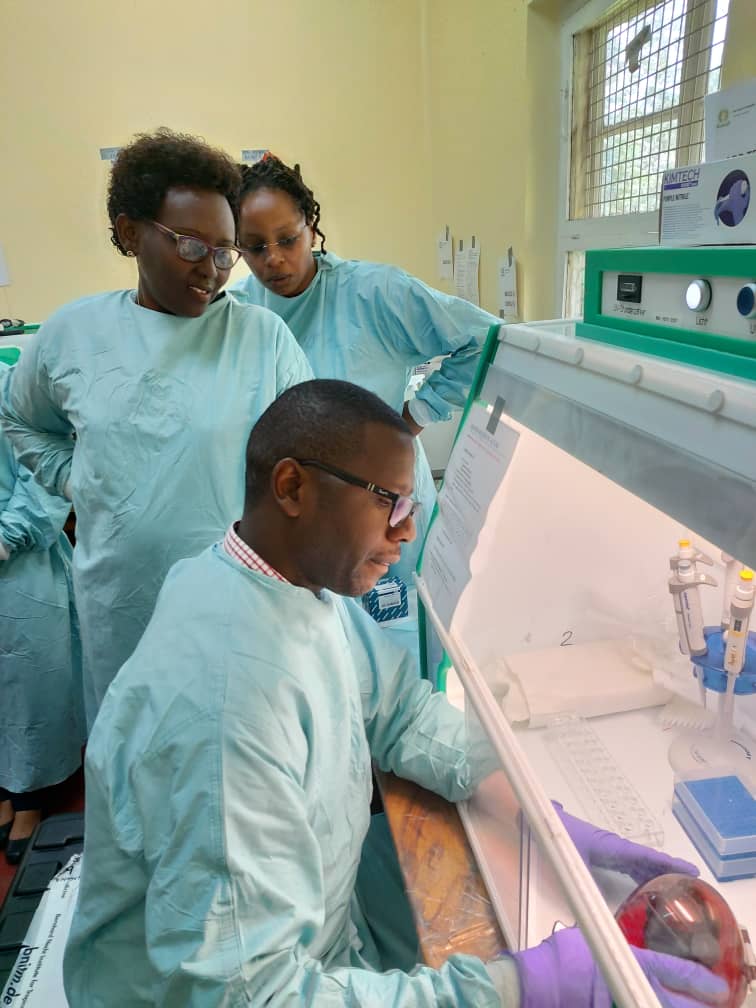The EAC Secretariat just finalised an intensive training programme for laboratory experts to detect and diagnose the new novel corona virus in the East African Community region.
The training was conducted under the EAC Network of Public Health Reference Laboratories for Communicable Diseases in collaboration with the Bernhard Nocht Institute for Tropical Medicine (BNITM). The programme is part of the financial support provided to the EAC Region by the German Development Bank (KfW) on behalf of Federal Republic of Germany. The training aimed at building capacity in the region to detect corona virus.
The EAC Secretariat further acquired diagnostic kits for the novel corona virus that will be distributed among the EAC Partner States soon after the training as part of the regional preparedness plan against COVID-19.
Until 19 February 2020 in China alone more than 74,000 people were infected and over 2,000 died of the disease. 25 countries outside China confirmed cases of COVID-19; 12 of these countries reported cases of human-to-human virus transmission. As of Feb 11, Africa did not have any confirmed cases, but suspected patients have been quarantined in Ethiopia, Kenya, Côte d’Ivoire, and Botswana, according to WHO. However, on 14 February Egypt reported the first confirmed case on the continent.
The Acting Head of Health Department at the EAC Secretariat, Dr Michael Katende, says: “The Secretariat provided the training in an effort to enable all EAC Partner States to detect and diagnose the novel corona virus promptly and thereby avoiding its spread”.
He further emphasized that this initiative is in response to WHO’s Strategic Preparedness and Response Plan (SPRP) for the new coronavirus. The objectives of the plan are to limit human-to-human transmission of the virus, particularly in countries that would be most vulnerable if they faced an outbreak, to identify, isolate and care for patients early, communicate critical risk and event information, minimize social and economic impact, reduce the spread of the virus from animal sources and address still existing unknowns.
Dr Katende further noted that while no case has yet been confirmed within the EAC region, it was of high priority and importance to ensure that all EAC Partner States maintain high levels of preparedness and surveillance.








